Floss, what’s all the fuss?
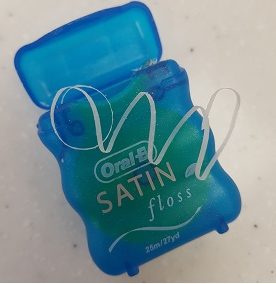
Do we even need to clean in between our teeth?
Floss is one tool you can use to get in the gaps between our teeth, which is essential for healthy gums and teeth. If we just brushed our teeth with a toothbrush and nothing else, we are leaving 40% of our teeth untouched. These surfaces that don’t get cleaned by the toothbrush are then at a higher risk of developing problems such as tooth decay and gum disease. But most people seem to hate doing it or don’t have time for it with many other variations on these excuses (even I have struggled with it in the past). So, do we actually need to use floss?
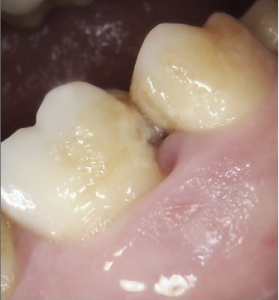
But wasn’t there something in the paper about how floss doesn’t do anything?
For small gaps between our teeth floss will remove the harmful plaque bacteria. But, if the gaps are bigger, floss will just waft around and won’t remove everything we want it to. That’s where interdental brushes are useful as you can get the correct size to fill the gaps. The bristles can then remove all the plaque bacteria that our toothbrush and floss can’t reach. My main reason for getting into a good habit with interdental cleaning was because I see regularly the consequences! Your risk of tooth decay and gum disease increases and with this you are more likely to loose teeth. It took some time (about 6-9 weeks to develop a habit) but it is so worth it now. I can’t go even a day without flossing as they just don’t feel clean and I really notice the difference.
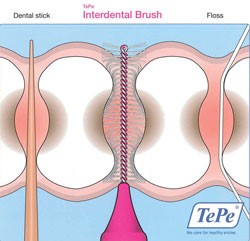
But flossing makes my gums bleed!
Now this is a tricky one to explain, because at first yes it will make your gums bleed but, if you do it regularly it will stop. This is true with floss and the interdental brushes. When the harmful plaque bacteria has been on your gums for some time, your body will send blood vessels (for the white blood cells that deal with bacteria) very close to the surface of your gums. The blood vessels then become ‘leaky’ so that things can pass easier in and out of them. If you then touch your gums at this point they will bleed, this is due to the bacteria, not the fact you have touched them.
Once you regularly remove this bacteria, the blood is no longer needed and the vessels can go back further under the surface to where they should be. This can take a few days but at this point your gums should have stopped bleeding. If they continue to bleed there may be another underlying cause and speaking to you dentist or doctor is recommend.
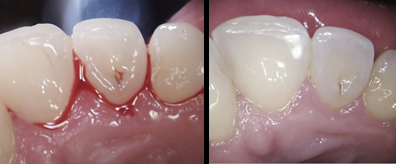
I’m such a lazy flosser, is there anything that can make it easier?
There is a gadget that can “floss” our teeth for us and it is called an Air Flosser. It’s also a great one for those that struggle to find the time, have really difficult teeth to get between, if you have braces or retainer wires and if you are just plain lazy. There are many types on the market but one in particular has some impressive studies to show how effective it is.
The Air Floss Pro by Phillips Sonicare uses air and water (or mouthwash) at high pressure to blast between our teeth removing the plaque by force. It has been found to be just as effective as flossing. However, if the gaps between your teeth are bigger then you will still need to use interdental brushes. I started to use one just so I could see what all the hype was about and I found it so easy to use and quick. I could clean in-between all my teeth in about 30 seconds! However, the gaps between my teeth are bigger so I need to use a range of interdental brushes.

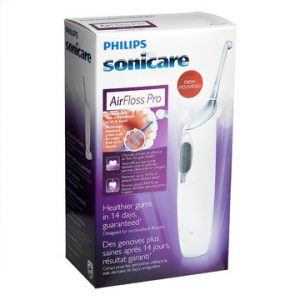
For more information about cleaning in between your teeth or you would like to purchase any of the items mention which are available to buy at the practice, please don’t hesitate to contact us at New Street Dental Care on 01264 301301 or email info@newstreetdentalcare.co.uk.

